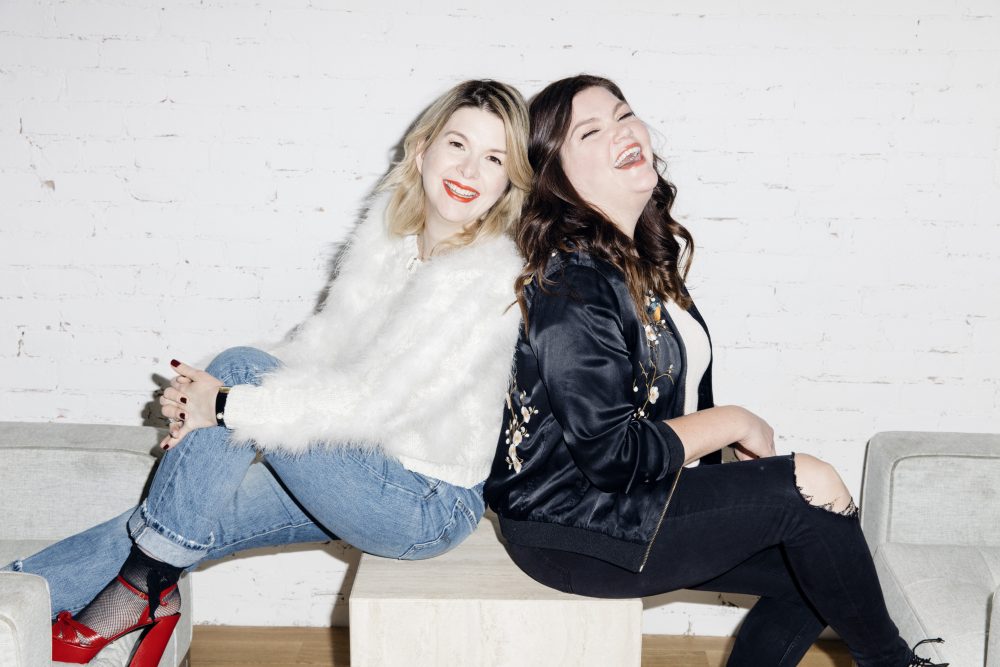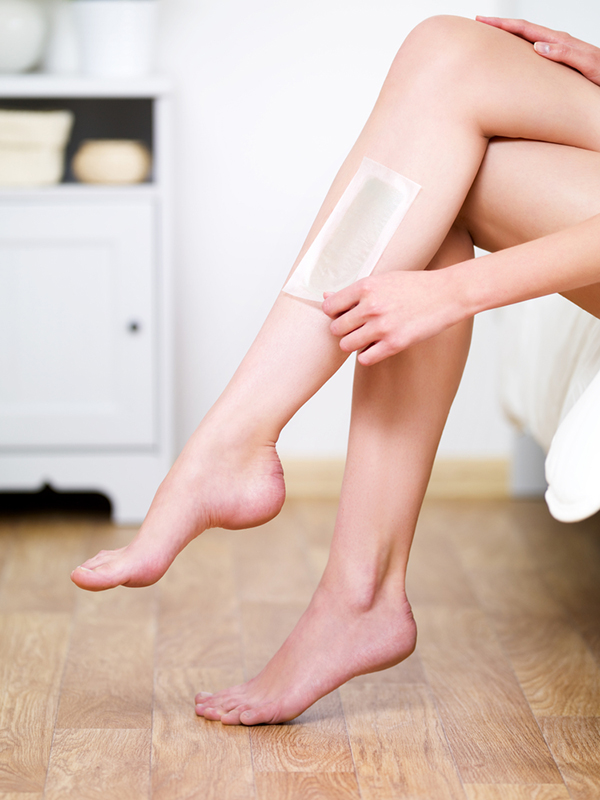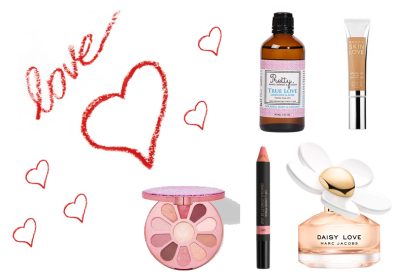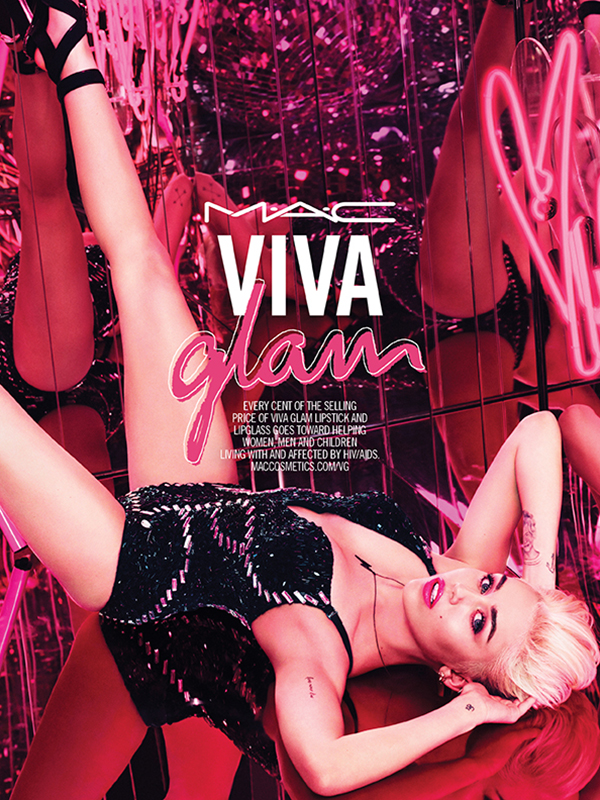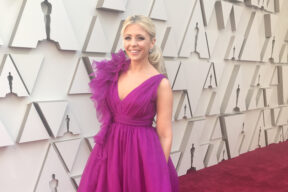What do you get when you put together two long-time beauty editors with a serious podcast obsession and a whole lot of insider intel on the beauty world and its cult products? You get Breaking Beauty, a magazine-style podcast that goes deep on the origin stories behind some of your favourite beauty brands and their genius founders. Created by former magazine beauty editors Jill Dunn and Carlene Higgins, of Elle Canada and Flare respectively (Dunn is also the founding editor of this very website), Breaking Beauty is an addictive listen that has spotlighted the inside stories behind some of the hottest beauty brands including Nudestix, Glossier, Drunk Elephant and Rodial. We caught up with the ladies behind Breaking Beauty recently and chatted top-shelf products, the founders on their wishlist, and whether more expensive is better when it comes to beauty products. Settle in, beauty lovers, this is a long read, but well worth your time.
K: So you’ve mentioned that Lev Glazman, one of the founders of Fresh, inspired the podcast, which I was a bit surprised by.
J: I think he’s one of the ones. His powerful storytelling is what inspired it. We’re realizing the importance of it more and more the power of anecdotes and storytelling and that really lends itself to a podcast as well. He can go deep on a story and talk about the black market and how this completely shaped his view of beauty in the world. I mean that’s pretty powerful. So I think it was more his powerful storytelling but also the fact [of] growing up behind the Iron Curtain and now he’s got one of the best-selling skincare lines at Sephora. Why were you surprised by that?
K: I think I was surprised because I initially felt because there were a number of, a lot of the founders happen to be women. And so I thought maybe there was a component of: let’s put the focus back on founders because we want to spotlight amazingly cool entrepreneurial women. But it seems to be in the beauty space, there’s just so many of them.
J: And that was the whole reason I wanted to get into writing [about] beauty in the first place and I’ve said this on our ‘Get To Know Us’ episode. There’s no other industry that’s been built on women’s ideas and for women more than the beauty biz really.
K: I know! And certainly not fashion.
C: Definitely not.
J: It’s not revered in the same way. You know, you look at ˜War Paint’, which is the musical on Broadway right now, about Elizabeth Arden and Helena Rubinstein. Two self-made millionaires, they have spas on Fifth Avenue and their names are on products around the world — so cool. Before they could even vote they had that, so when you really start looking at it, I think women are always going to lead the innovation.
C: Well, they’re primarily the ones using it.
K: That’s the thing exactly.
J: And we didn’t get to interview [co-founder] Alina Roytberg, which is of course his partner in crime to start Fresh, so there’s always a female in that too.
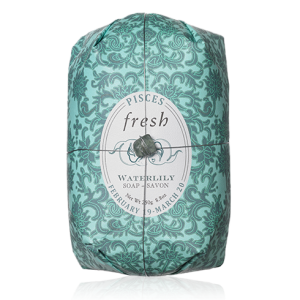
C: I think ninety percent of the people we’ll end up interviewing will just happen to be women but we’re interested in all stories. Everybody has stories and yeah, I’m interested in hearing from all of them, like again, I think that [hairstylist] Vernon Frané§ois’s story is so incredible and so important.
J: And we’re really interested in the Sephora Accelerate program where they’re identifying women that just need some tweaking on their business and their business model. Their whole MO is to get more women heading companies in the beauty space and we talked to Barb Stegemann [of The 7 Virtues], and right before we interviewed her, she was going to go and be a part of this work accelerate in a mansion ” it’s like a boot camp for beauty. They’re hand-picking people from all over North America and giving them business [tools] like just basically a handbook, like this is how we do it, you want to move some product ” here’s how to do it, we already think what you’re doing is great, here’s how you blow it up.

K: Can you talk a bit more about the origins of the podcast and how it came to be?
J: At the beginning, we knew that this was like a white space that no one else was dabbling in. And I think initially people didn’t understand how we were going do it, with such a visual topic, lipstick swatches and all of that. But now that we have a bit more of a rhythm, people are getting it more. And we’ve been really lucky with the people we’ve been able to interview so far I think, like the Fresh founder was literally the first person. We were like, he inspired our whole podcast, and it was our fifth episode that we got to talk to him.
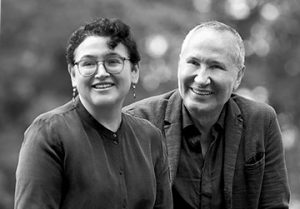
K: So he’s the one that inspired the idea?
C: Yeah, initially. I mean there were other matters too. It was just a combination [of], when I went freelance and we sat down, we’re like: what are you going to do, what do you want to do. And we were both like, podcasts. We were both really into podcasts. And there was so much left on the cutting room floor when we were writing for magazines. We would, for example, go on a trip and meet somebody like [Fresh co-founder] Lev, who had this fantastic story about growing up in Russia and going to black markets in the middle of the night to buy contraband perfume and how formative that was for him about the power of beauty, and the power of transformation. So I’d come back and I’d have 500 words to talk about something and I would just naturally have to write about the new product and there was this whole other great backstory and there was nowhere to put it. So he was one of them, Charlotte Tilbury would be another one, growing up in Ibiza. And also, being best friends with Kate Moss for so long, and she’s another bucket-list person that I would love to talk to because her stories would be so good. Pat McGrath, I’m sure she has amazing stories as well growing up.
J: There’s a bit of a renaissance right now too with founders that you and I haven’t really talked about. But it’s true with Pat McGrath, she’s been a makeup artist for 25 years, and only now is she bringing her line to the forefront and Tilbury’s line is only a couple of years old now at this point. I just think that the time is right for entrepreneurs like Glossier, which just like blew the lid off everything with these new opportunities and interest in that.
C: There is the podcast How I Built This from NPR, which I think they do an extremely good job at what they do. So we’re kind of like the How I Built This for beauty. [Beauty podcast] Fat Mascara was already out there, they were already talking beauty which is great, but we wanted to have a point of differentiation and also to bring a narrative approach to beauty, which we hadn’t really seen. But it really does take more editing; it takes more time [to do our approach]. So we really go about trying to craft it almost like a [magazine] feature; we try and get into the backstory, we try to bring in context by bringing in statistics and comparables because we don’t want it to be like an infomercial either. You know, we really try and bring in the editors’ hat.
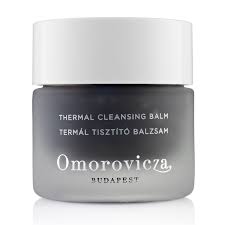
J: And also, people have to have a different takeaway; it’s not just like: are they going to care about these founders? Absolutely. But they also want to be like, okay, what do I buy? And a lot of people have told me afterwards, they’re like, oh my god, I want to buy that Omorovicza Thermal Cleansing Balm or whatever the product is [we talked about].
C: [It’s about having] an editor’s eye as opposed to intimidating people with bazillions of products. We’re trying to just focus on: what’s the icon in the line, what was the first to market, what is the best-seller that sells every 30 seconds. That’s kind of our approach and we introduced ˜The Glow Down’ a few months ago just as a play space to experiment, to be able to talk to celebrity hair and makeup people when they come into town and just break form. So we’re really experimenting with that and chatting with other podcasters, just having fun. It’s almost like somebody buying a book or downloading a movie, you know what I mean it’s like you’ve chosen it and you’ve committed the time to listening to it.
J: It’s pretty powerful in terms of being in somebody’s ear. And you can see when people do discover us, they go back, and they binge listen. And that’s the really powerful thing about podcasts that you don’t get in a blog or a newspaper, or any other medium really. Well you would for a TV show on Netflix, that same bingeability, it’s like a binge culture we’re living in for consuming content.
C: We’re like YouTube that way. I have every confidence that two years from now, people are going to go back to like the Emily Weiss [Glossier founder] episode of our podcast.
K: It was a good one. She was like intense. I mean, I guess I should’ve known that but yeah.
C: She’s on her game. Davis Factor of Smashbox is coming up in December. The next one is Drunk Elephant’s Tiffany Masterson.
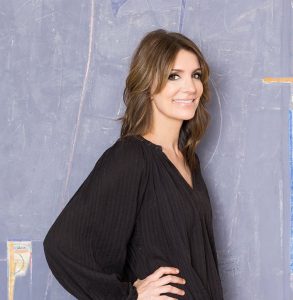
J: It was really interesting to talk to her because what I would say is that she’s coming out with this brand that’s breaking a lot of rules. But she personally is very shy, very quiet, very much behind the scenes, which is quite opposite to a lot of brand founders who have three-year-old companies right now. And she’s just got good instincts ” she’s hitting the mark on something people didn’t even know they wanted.
K: It’s so well curated.
C: She’s got a great thing going. We had different experiences [with the products], but we have different skin types so ” I have very sensitive skin so I didn’t love every single product, some of the acids were a little bit too strong for my skin. And I didn’t notice a huge difference in reduction in redness given that it’s basically for sensitive skin. I’m not used to peels and I’m not a huge peels person. Jill is very much a peels person so she loved it.
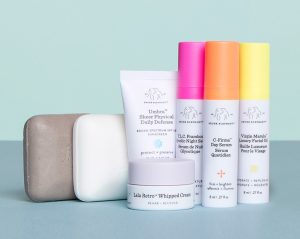
K: But even just like the B-Hydra Gel, Vitamin C Serum, the Marula Oil is beautiful. Whether you need to spend that much money on a marula oil, I don’t know.
C: I mean the reality is, it’s the fastest growing skincare line in Sephora’s history. So it’s definitely worth spending an hour on, you know talking about it and listening to it. I think there is some confusion around it; a lot of people think that it’s all natural, so we dive into that as well.
K: Natural does not automatically mean better right? If you have an essential oil in a product ” it can cause irritation.
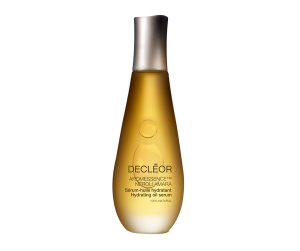
C: See that’s the thing. I have sensitive skin, but essential oils don’t bother my skin, they like them. If it’s essential oil-based it’s fine. I’ve talked about the Declé©or Neroil oil and my skin absolutely loves it. I can’t use fragranced products with artificial fragrances like in some of the French skincare lines; my skin hates it. So it is true that one person’s trash is another person’s treasure or however you want to put it, but everybody’s skin is different. So you have to find what is compatible with yours.
K: Do you think, having worked in the industry for so long, that a more expensive product is better?
C: I can definitely say no to that because I actually think that Olay has some amazing products, and I recommend Olay Regenerist to a lot of people.
K: I do as well with Neutrogena.
C: The reality is that ” the same thing is true for L’Oré©al ”when you have these big companies where they own multiple brands, you can always see a high/low within that. All these sulphate-free shampoos in the L’Oré©al line [Everpure] and they have the light purple packaging, started coming out a couple years after they bought Pureology brand. You can tell even by the smell that they’re lending each other all those technologies so they’re benefitting from that process and you hear that also at P&G. So you’re getting a lot for your money, even though it’s not a lot of money. It’s like the whole scale, right, the economies of scale. So you can get great products for not a lot of money.
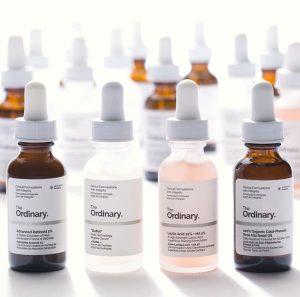
J: Especially now with [brands like] The Ordinary [you don’t have to] spend $700 just to look good. If you want to, by all means buy it, but you can also spend seven dollars and ninety cents. And it’s the same ingredients; it’s very rare that you hear about a new ingredient that can compete with retinol, hyaluronic acid, lactic acid, whatever.
K: That’s a great point.
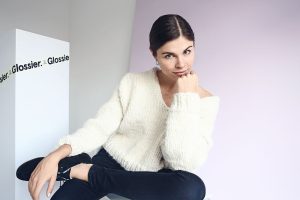
C: So that’s also part of the reason why we’re seeing a resurgence right now as a trend, glycolic acid, retinol is coming back. People are creating retinol products now when it’s been around forever and I think the prices are lower and it’s becoming more accessible. And obviously with Glossier, [founder] Emily Weiss explains that in our episode as well. She worked as a beauty editor for many years and she was taught to believe that the more exotic the ingredient was, the more expensive it was, and supposedly the better it was. And when she created her own line she really sought to break that open and her price points are surprisingly accessible. And the way she says it, a lot of her ingredients can go toe-to-toe with the $300 priced ones out there.
K: Who is on your ‘founders wishlist’?
J: Kat Von D is on my wishlist, I think she just is no filter and she has a lot of really interesting ideas.
C: Also on our hit list is Vernon Frané§ois.
K: And who’s that?
C: He’s a hair artist who created his own line it’s in Sephora right now, it’s for naturally textured hair.

J: He does Lupita Nyong’o’s hair. He’s got a very niche line at Sephora and we just want to have more diversity and what he’s doing is really cool and his products are beloved, anyone who uses them is obsessed. That’s just an underserved market for innovation.
C: I just did a mini profile on him in Elle Canada and speaking to him on the phone, I just really started to understand what an impact he’s having in the hair world out there. He gets letters from people through DMs and stuff on a regular basis and they’re like, thank you for letting me understand that I can wear my hair in its natural texture to the office or to my wedding. Really just opening people’s minds to the idea of loving what you have and creating products that allow people to embrace it and not just be fighting with it all the time. I think he’s really just the most important person in hair right now.
K: And it seems like that’s a void that needs to be filled.
C: He’s coming out with like a lock cream to style ‘locks, which is just like, when would you have seen a product like that at Sephora?
K: For dreadlocks you mean?
C: Yeah. It’s really changing the conversation about grooming and all that. It’s great. But that’s one thing we have noticed, we really want to speak to more diverse founders because now that we’re zeroing in we can really see how important it is. There’s not enough voices and we want to hear more.
K: Okay, so what are some of your HG products right now?
C: I can name some. The Esté©e Lauder lipstick, which I put on my Instagram.
K: Is this the new one?
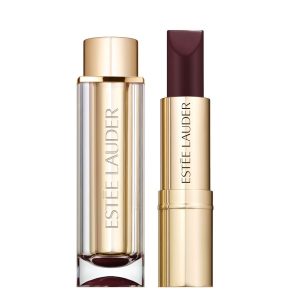
C: Yeah the new one. And the actual shade is on my Instagram as well and I absolutely love it. It’s like a matte, but a creamy matte and it does stay on and it’s just the perfect browny, burgundy shade that I’m absolutely loving for fall. I’m also using Pai Skincare right now, that I was using before Drunk Elephant and I really like Pai out of the U.K ” they used it backstage at Stella McCartney. It’s a sensitive skincare line, it does have essential oils though, but I really like it. They have a spray-on essence and I’m obsessed with waters and essences, I prefer them to serums. And to keep my hair looking white blonde, I really like the Schwarzkopf spray, the purple one, it’s not new.
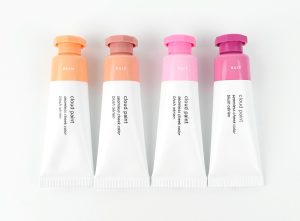
J: [For me] Glossier Cloud Paint, I’m obsessed with that now. I wear it every single day. L’Oré©al Paris Lash Paradise Mascara, the new Bioderma foaming cleanser for sensitive skin is amazing. Usually when you’re sensitive, you see foaming and you run the other way, but it’s amazing because you know the micellar water, it’s like that but in a foaming cleanser so it actually takes your makeup off, which is great. And the new Commodity fragrance called Book, I just started wearing it; I’m obsessed. It’s inspired by Hemingway, but I love that.
K: I want the candles. And what else?
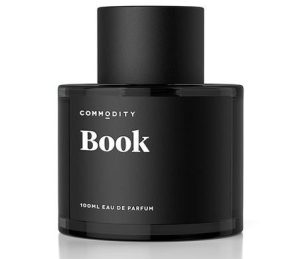
J: Skincare: I apply Bioderma and then for hair, I tried AG Hair, the brand that’s made in Vancouver ” their all-natural line. Their apple cider vinegar shampoo and conditioner is really good. All natural, I think that’s the space where we’ve seen innovation in skincare and makeup for naturals.
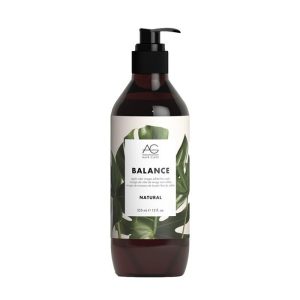
K: So natural question: would either of you, on your own or together launch something? If given the opportunity, if given the means?
J: I mean, I guess never say never. It’s not been on my list of things that I’m dying to do, but I mean you never know. I think that certainly the barrier of entry is lower and lower everyday. You can find a chemist, you can find a marketer, you can find ” lots of good ideas can come from anywhere right.
C: I would definitely never say never. But I just have ideas all the time.
K: Gotta get that whiteboard going. Moodboard, vision board.
J: Like Emily Weiss. You know, I’ve never had a vision board, maybe I should.
C: I can see Breaking Beauty spinning out into a book though. Potentially ” we have a lot of amazing assets of founders that are with their signatures that we can’t wait till we get it up to 100, like so fun. And also like beauty podcast festivals, that’s in my dreams for down the road. I think that would be so fun as well.

